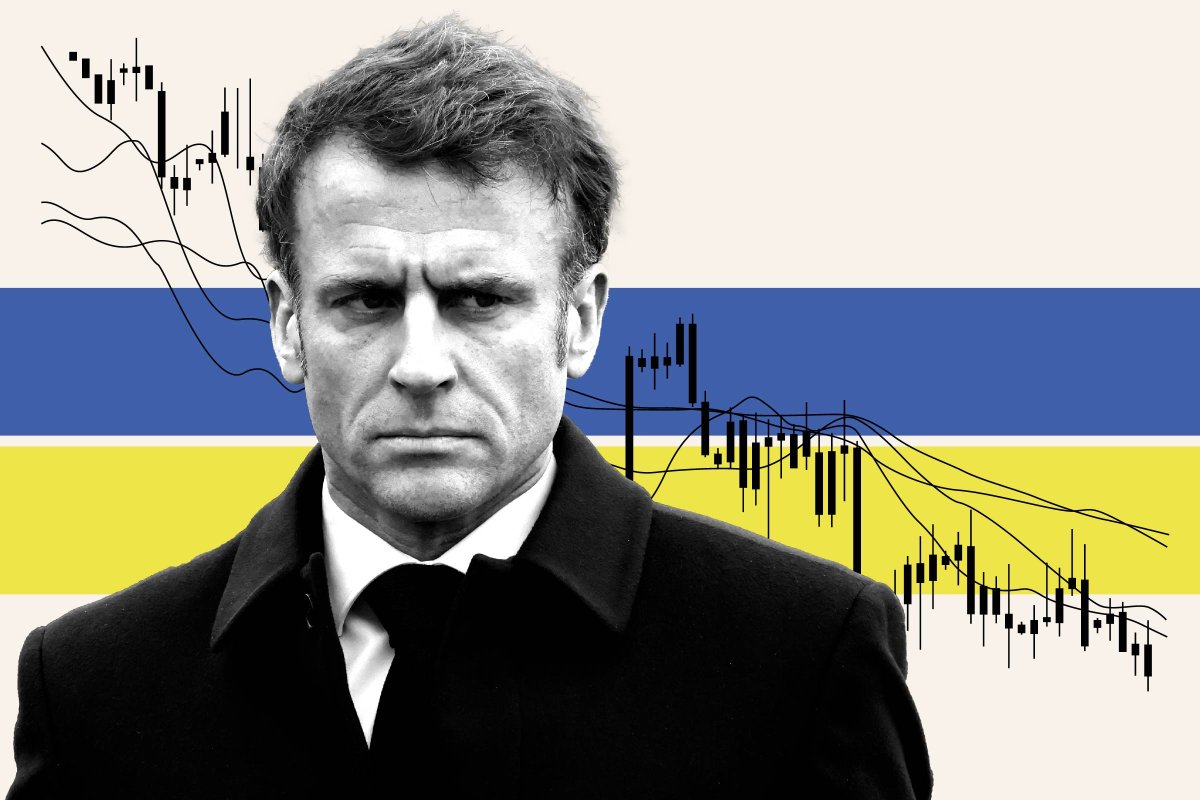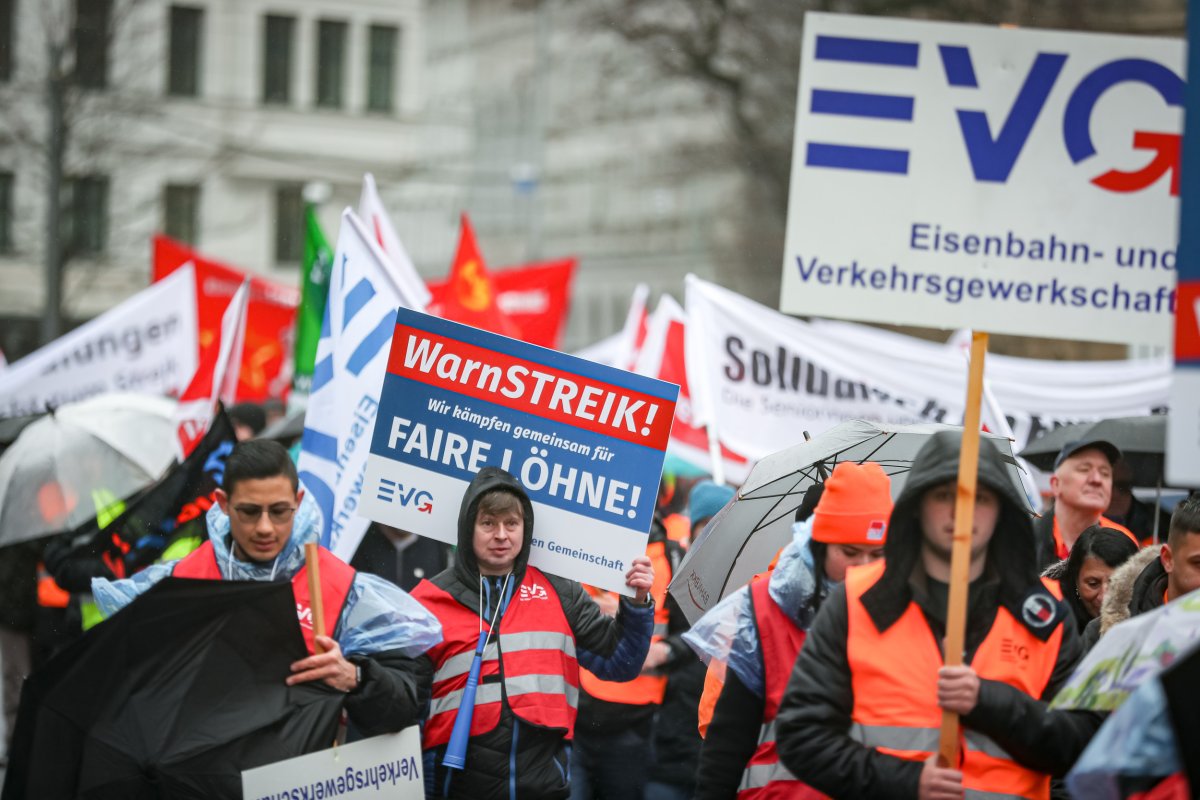- The ongoing cost-of-living crisis has sparked violent protests around the world.
- Global inequality has surged following the COVID pandemic and the war in Ukraine, leaving politicians in a bind.
- But more nationalistic policies designed to boost energy independence and domestic-based manufacturing, for example, could end up making the problem worse, experts have warned.
American consumers have been feeling the pinch due to high inflation and other pressures on the economy, but any feelings of anger and frustration haven't spilled out onto the streets as violently as in France.
More than a million French citizens took the streets in January to protest what national leaders characterized as necessary reforms to the country's national pension plan, sparking months of protests that would bring a nation's economy to a standstill and call the legitimacy of an already-stressed government into question.
The country's president—the centrist Emmanuel Macron—was just months removed from a campaign against far-right candidate Marine Le Pen. While successful in his reelection bid, Macron's disapproval rating started to rise, approaching 70 percent, and months into his new term, Macron is facing immense frustration from his constituents over the rising cost of living, partially caused by the war in Ukraine.
While an extreme example, the discontent seen in France is not unique. Spurred by an increasingly untenable cost of living crisis, economic protests have reached a fever pitch in the last several years, spreading like wildfire across multiple continents.
After a brief decline in 2019, global inequality roared back with a vengeance in 2022, spurred by a lingering crisis stoked by the global COVID-19 pandemic that was only exacerbated by war in Ukraine, causing supply chain interruptions and spiking levels of inflation that have hit the working classes hardest.

Data from the Carnegie Endowment's Global Protest Tracker in 2022 showed the number of economic protests around the world soared compared to previous years, with the disruptions in global supply chains and economies taking workers for granted to stay competitive presenting the biggest factors in civil unrest.
"Globalization is very important in why people are striking," Barbara Wejnert, a professor of political sociology at the University of Buffalo who has studied the impact of globalization on social movements, told Newsweek. "Workers are unhappy not because they don't have jobs, but they were not dignified jobs."
Widespread Protests
And there remains little sign that trend will slow anytime soon.
In Germany, recent nationwide strikes by labor unions over the cost of living paralyzed the nation's mass transit systems in what were considered the nation's largest strikes in decades.
In the U.S., the lowest-paid staff across the Los Angeles Unified School District walked out for three days over cost-of-living concerns, with many arguing that the school district was keeping some of its most integral employees living below the poverty line at a time when the price of survival in Los Angeles was becoming unsustainable for many.
In the U.K., hundreds of thousands of unionized workers in industries from education to health care and transportation paralyzed the economy during widespread single-day protests over issues including pay and general working conditions.
"The global trend is fairly flat in terms of protests since the shock of COVID-19," Dave Clark, a political science professor at Binghamton University and a researcher with the Political Instability Task Force, told Newsweek. "But I do think the makeup of some of those protests has changed."
Such a trend has garnered the world's attention.

In a presentation at Davos, Switzerland, this year, the World Economic Forum identified the global cost-of-living crisis and resulting civil unrest as the greatest short-term threat currently facing democracies across the globe, one that has only been exacerbated by global events like the war in Ukraine and growing tensions in the Middle East and East Asia out of governments' hands to control.
Concerns Over Rising Prices
Combined with the inequality crisis during the COVID-19 pandemic, emerging crises like the war in Ukraine have led to increased uncertainty across everything from the cost of living essentials to the integrity of global supply chains, and significant shakeups to a global economy that has defined the planet's way of life for decades.
According to a 2022 report by the United Nations' Global Development Programme, about 71 million people in the developing world fell into poverty in the space of just three months as a direct consequence of global food and energy price surges caused by the war in Ukraine, offsetting the pre-pandemic downward trend for those in extreme poverty.
The planet's "new normal," the World Economic Forum warned, is a return to basics—food, energy, security—that "our globalized world was thought to be on a trajectory to solve." And today, some in the United States are beginning to question whether the cure to the problem is worse than the disease.
In recent months, popular support for the war in Ukraine has begun to languish, with a growing number of Americans—roughly one in four, according to survey data from the Pew Research Center—believing the U.S. was providing "too much" aid to the war effort as some Republicans in Congress have pegged it as a mounting contributor to the national debt.
MTG holds her ground on 60 Overtime:
— Hank (R) Deplorable (@DeplorableHank1) April 3, 2023
"Ukraine is not the 51st state of the United States... We are 31 trillion dollars in debt, we're not defending our own border, we're ignoring our own people's problem." pic.twitter.com/KJGZBKEn1p
Gallup polling in the U.S. shows mounting concern among voters over inflation and the ability of their government to solve the problem.
In addition to the growing number of economic protests that has taken place around the world, Clark told Newsweek that he has noted a steadily increasing trend in the number of protests aimed at removing political leaders over the past decade—a trend he said can be attributed to the growth of populist movements that emerged out of whiplash against globalism and increasing wealth inequality.
Brian Michael Jenkins, a senior adviser to the president of the RAND Corporation, told Newsweek that similar tides have been seen throughout the course of history, including in the wake of the great flu pandemic in the early 20th century and the subsequent economic crash exhibited in the 1930s that led to a sharp increase in nationalist fervor and—in countries like Great Britain and the United States—a reluctance to engage in world affairs, regardless of the broader social cost.
In the lead-up to World War II, one Gallup poll showed 90 percent of U.S. citizens opposed to intervening to stop Germany's advance across Europe, for example, at a time when President Franklin Roosevelt focused all of his efforts on shoring up the domestic economy.
Today's leaders, however, don't have that luxury, finding themselves in the precarious position of selling their constituents on continued involvement in world affairs at a time when the situations within their countries have grown increasingly tenuous.
However, Jenkins noted, some nationalistic policy planks pushed by conservatives in the U.S. over the past several years—increased energy independence, more domestic-based manufacturing—have been adopted by leaders like U.S. President Joe Biden in response to the war in Ukraine as a bulwark to globalization, shaped largely by vulnerabilities exposed by the global supply chains that were interrupted by conflicts.
Though the World Economic Forum warned in its report that such a move could create additional disruptions and lead to more price increases, the changes could signal that the world might in fact "be moving toward a more bifurcated global economy" as a result of the war, Jenkins said, spurred by a number of failures in society that have forced world leaders to reckon with the social consequences of the systems they've built, largely, because they've been forced to listen.
"People have tremendous power," Wejnert said. "We can see it in political movements, but also in the power of our economy. And politicians and economists need to see that it is to their detriment not to accommodate people in that equation."
Uncommon Knowledge
Newsweek is committed to challenging conventional wisdom and finding connections in the search for common ground.
Newsweek is committed to challenging conventional wisdom and finding connections in the search for common ground.
About the writer
Nick Reynolds is a senior politics reporter at Newsweek. A native of Central New York, he previously worked as a ... Read more
To read how Newsweek uses AI as a newsroom tool, Click here.






